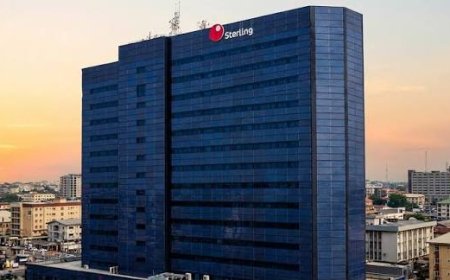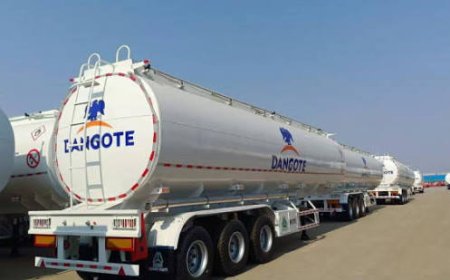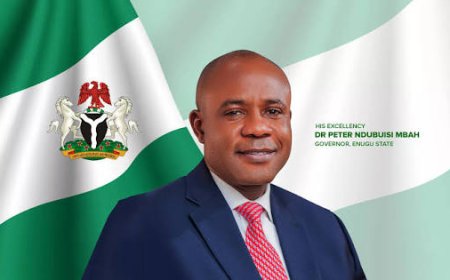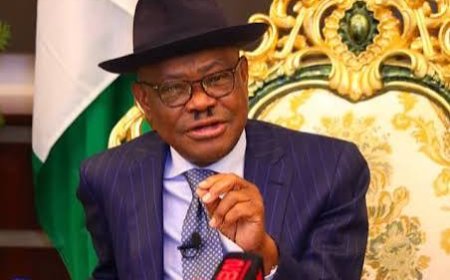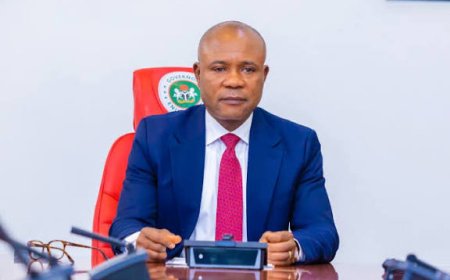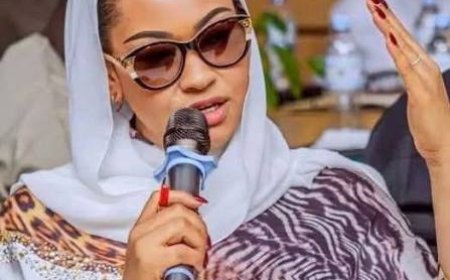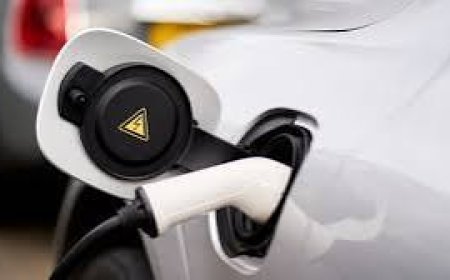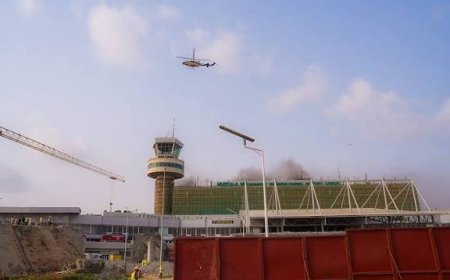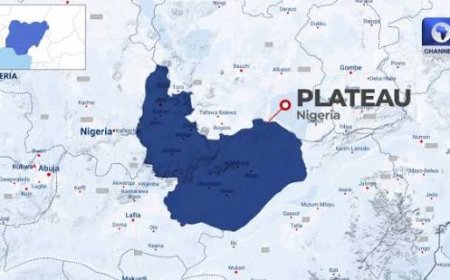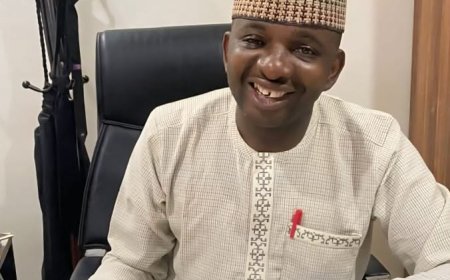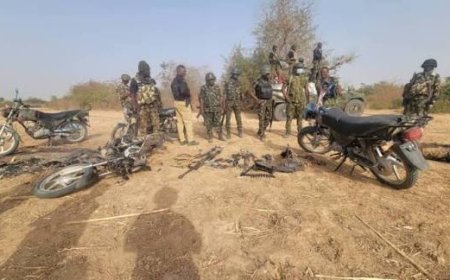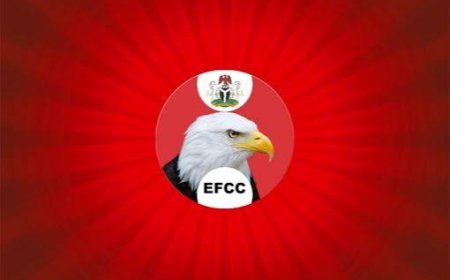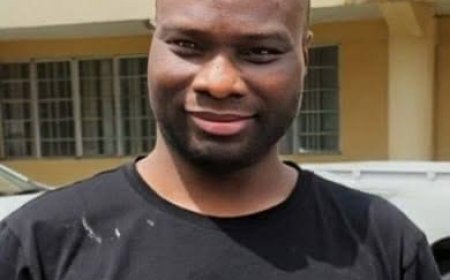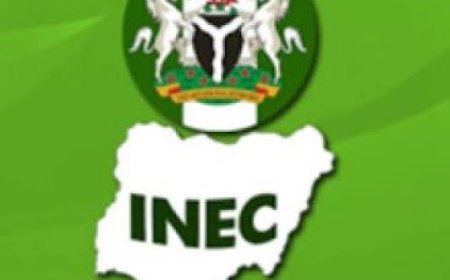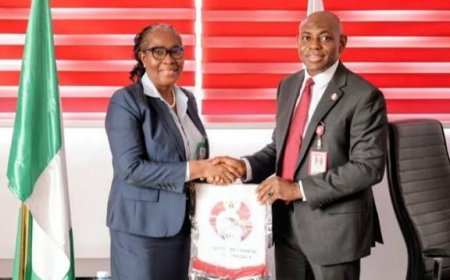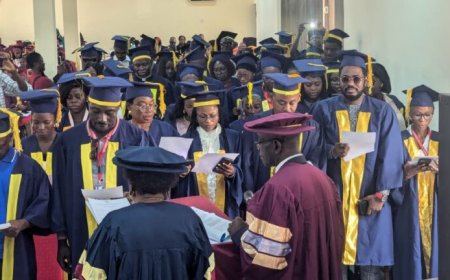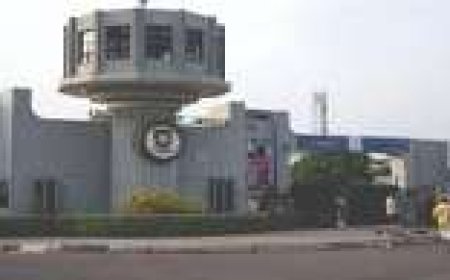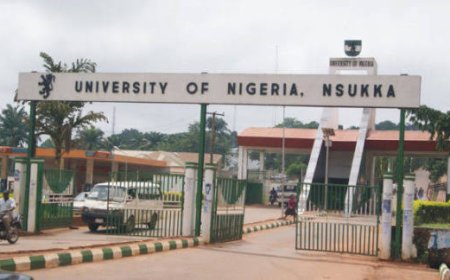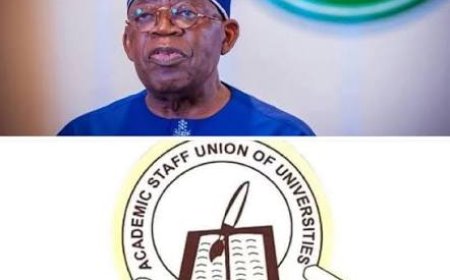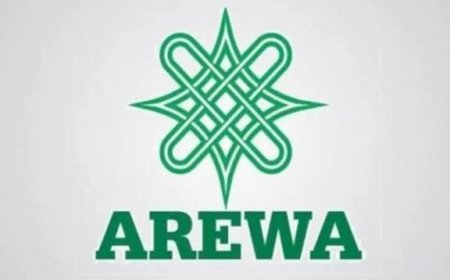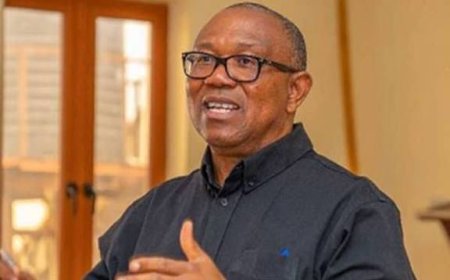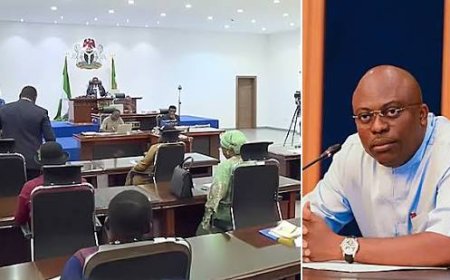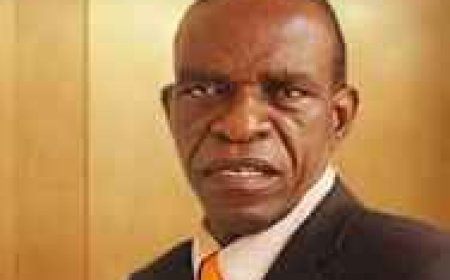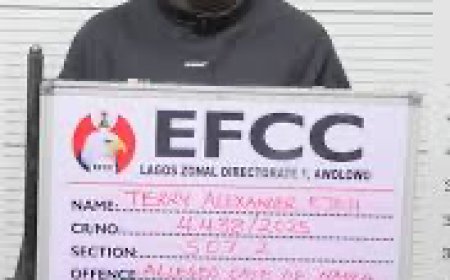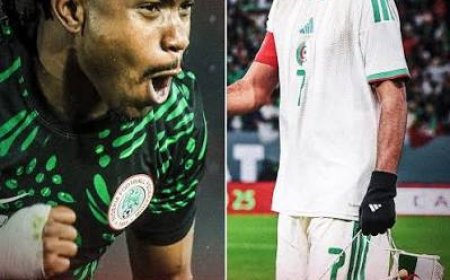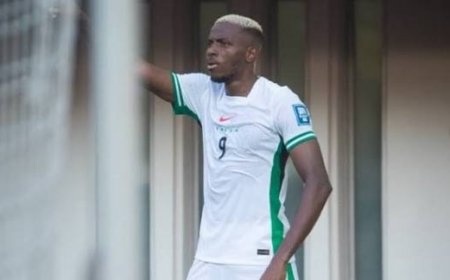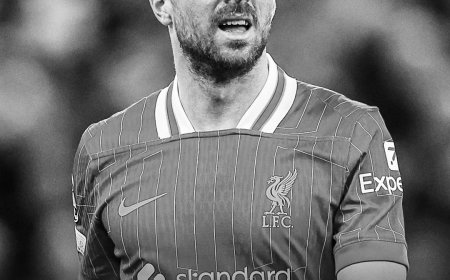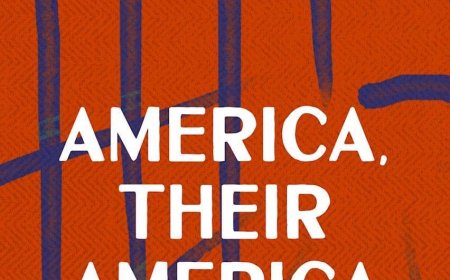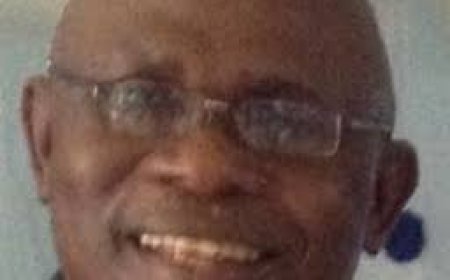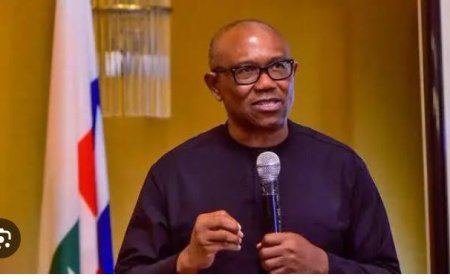Nnamdi Kanu as a Tool for Politics.
When political agendas hijack the struggle for justice, they rob the true victims of their voice.
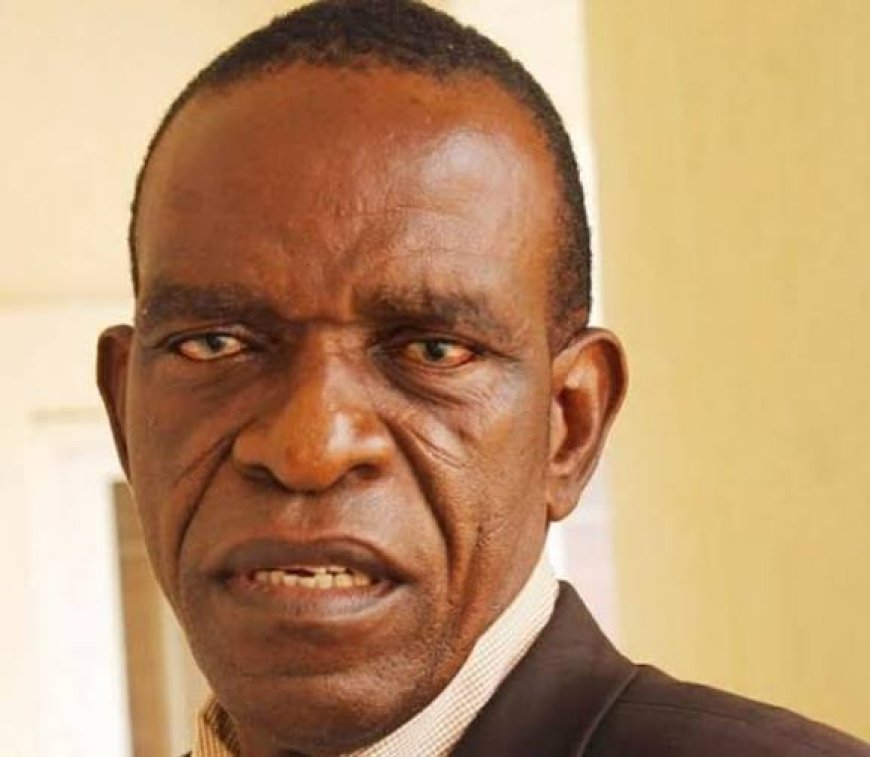
Political Musing of Thursday October 23, 2025
By Ike Abonyi
... "Fight for things you care about. But do it in a way that will lead others to join you.” -Ruth Bader Ginsburg
When political agendas hijack the struggle for justice, they rob the true victims of their voice. This increasingly appears to be the case with Mazi Nnamdi Kanu’s crusade for justice on behalf of the Igbo people of Nigeria.
When Kanu embarked on the Biafran struggle, he knew it would not be an easy journey. He founded Biafran Radio to propagate his controversial messages, often referring to Nigeria as a "zoo." While many reasonable individuals, including members of the Igbo community, were uncomfortable with the language he used, they initially supported his assertion that Igbos were being marginalised in Nigeria. However, few agreed that Biafra was the best solution at the time.
Initially, Kanu enjoyed significant support, reminiscent of the backing Chief Ralph Uwazurike received from his Movement for the Actualisation of the Sovereign State of Biafra, MASSOB, which ultimately waned after its initial excitement. The turning point came when late former President Muhammadu Buhari, a veteran of the Biafra war and not a friend of the Igbo, ordered Kanu's arrest, further aggravating the tensions stemming from the historical grievances of the war. At that time, Buhari even expressed a wish for Kanu's more hardships but was constrained by democratic principles and the rule of law.
Kanu's incarceration transformed him from a noisy agitator into a cult hero among his supporters who are mostly a youthful population of the post-war generation. Consequently, some political analysts argue that Kanu is, in a sense, a creation of the Buhari government, with his popularity growing due to the circumstances surrounding his arrest. After leaving office and even departing from this world, Buhari left this contentious issue for his successors to grapple with.
President Bola Ahmed Tinubu, whose political acumen is evident, appears less interested in resolving the issue than in exploiting it for political gain. This is the current atmosphere: politicians have taken ownership of Kanu's situation, overshadowing the primary objective of addressing injustice against the Igbo.
The two most prominent figures in the current movements for Kanu's release, are activist Omoyele Sowore and former Vice President Atiku Abubakar. While advocating for Kanu's freedom, their utterances simultaneously sideline the idea of an Igbo presidency in 2027. This is especially pertinent given that one of the foundational injustices prompting Kanu's activism is the exclusion of Igbos from political power.
Rather than advocating for justice in line with Kanu’s aspirations, many are using Nnamdi Kanu's prominence for their own political gain. Sowore is embroiled in a seemingly conflict with his ethnic brothers, President Tinubu, the Yoruba-led Department of State Services (DSS), and the Inspector General of Police, who is also Yoruba. While they engage in political manoeuvring, Kanu has become a mere tool, and the general public, especially Kanu's fanatical youth followers, seems to buy into this narrative. Key players in this political drama—Sowore, Tinubu, the DSS, the Army, and the Police—appear more focused on advancing 'on your mandate we stand,' than on achieving an Igbo presidency in 2027. Just imagine that after the protest orchestrated by Sowore, see who was arrested and hurriedly taken to court and remanded in prison, including Kanu’s lawyer, his brother, and 10 others, most of whom are Igbos. Are you still unclear about the game?
Atiku Abubakar, who is seeking his sixth presidential bid at the age of 81, is also attempting to leverage Kanu’s fame as he looks for a running mate in Biafraland. While this strategic move might be shrewd from a political standpoint, it does not consider the necessity of offering an Igbo candidate a chance, particularly when the zoning did not favour him.
Sadly, the Kanu situation is complicated by the current crop of indecisive and self-serving leaders in the Southeast. These disconnected leaders from their people would prefer Kanu to remain incarcerated, fearing that his release might challenge their political ambitions. And as they fund most of the political elites in the region, they also ignore the collective voice calling for Kanu’s freedom. What Sowere and Atiku were to take advantage of the lacuna created by the selfish Igbo leaders.
President Tinubu, believing he has nothing to lose by keeping Kanu imprisoned, waits for a political advantage. The President is currently desperately attempting to build alliances with politicians in the Southeast, but Kanu's release hinges on the perceived benefits to their political aspirations and re-engineering.
If Kanu were to agree to support Tinubu's campaign in Igboland, he would speedily be freed. However, Kanu has remained steadfast, insisting on justice for his people or the right to exit Nigeria and become an independent nation.
What becomes evident from Kanu’s case is that various stakeholders manipulate the situation to align with their political interests, whereas they should be advocating for justice for Ndigho alongside Kanu. While framing Kanu’s release as a means to restore peace in the Southeast may appear praiseworthy, it is crucial to address the underlying injustices that initially sparked this fight.
The double standards surrounding players in Nnamdi Kanu's case are evident in the attitudes of some gladiators involved. The Lagos State chapter of the All Progressives Congress, APC, condemned the protests, labelling them as politically motivated agitations orchestrated by opposition figures who seek to destabilise the nation. They insist that Kanu's case is a judicial matter to be handled by the courts, yet they remain silent on the existing court ruling that ordered the release of Kanu.
The Coalition of Northern Groups, CNG, also criticised the protests, warning that releasing Kanu would undermine the morale of security forces and embolden lawlessness. However, they see no issue with negotiating with terrorists, bandits, and kidnappers who murder innocent citizens including soldiers.
Suppose the government is sincere in proving that it is not benefiting from the noise surrounding Kanu. In that case, it should quickly initiate dialogue and negotiation as a more effective way to address the underlying issues driving the agitation.
Overall, the politicisation of Nnamdi Kanu's case reflects the deep-seated divisions and competing interests within Nigeria's complex political landscape. Leaders seem reluctant to sincerely and brutally address the concerns of the Igbo people in Nigeria.
But when all is said and done, Activist Sowore deserves accolades for successfully elevating Kanu’s case to this noise level however, we must not become so focused on this that we overlook other injustices, such as the senseless demolition of Igbo properties in Tinubu’s home state of Lagos by Yoruba individuals. As bad and unjust as this action is, it has not attracted Sowore’s attention.
It has become increasingly clear that under Tinubu's leadership, many hitherto prominent voices against injustice in Yoruba land are being silenced, and the crusade for justice and the rule of law is being redefined to suit the current moment. Nobel laureate Prof. Wole Soyinka, who many Nigerians of my age see as a champion for justice regardless of who is involved, now seems to act as an ethnic icon catering to Tinubu’s ego.
Finally, in closing this conversation, let's not forget that if the principle that says that injustice anywhere is a threat to justice everywhere binds us in an inescapable network of mutuality, it means that what affects one community indirectly affects us all and that should influence our actions going forward
God help us.
What's Your Reaction?








